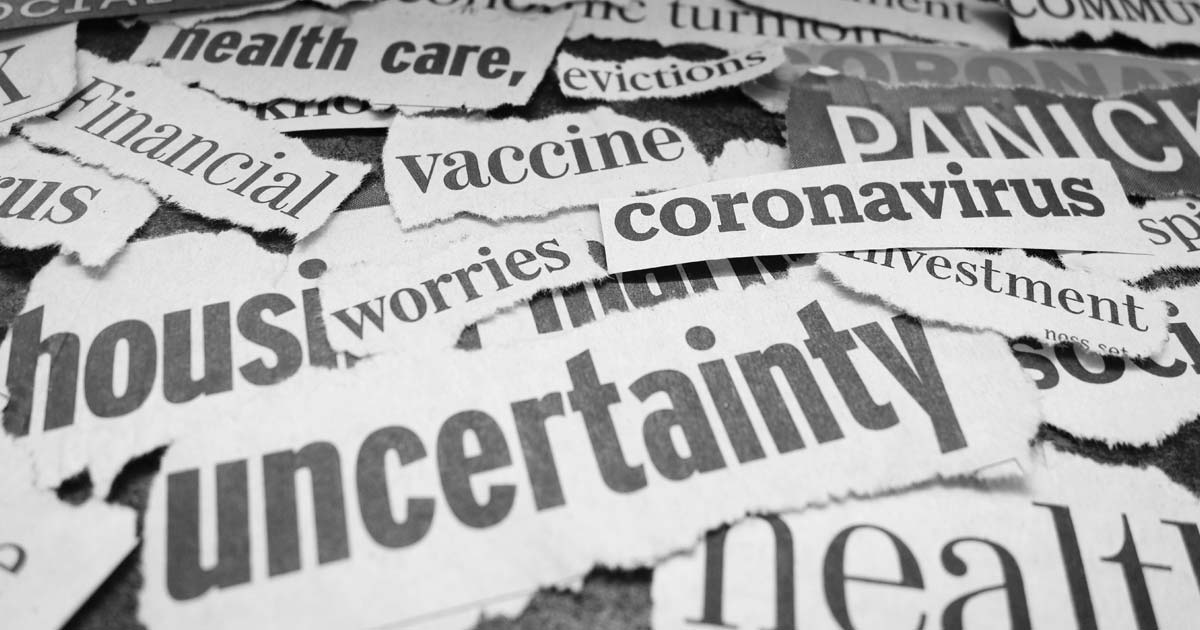The first several months of 2020 have been, to put it frank, hard as hell.
There has been plenty of turmoil in the news as of late and I'm sure there's more to come. Everything from an international pandemic that's killed thousands of people and no immediately available vaccine to an entire continent in flames, a basketball legend lost, and, most recently, the senseless murder of Black Americans causing hundreds of protests and unrest.
The headlines have been hard to see—even harder to report on.
You've heard the phrase, "If it bleeds, it leads." I've worked in news and social media for nearly five years and there is a semblance of truth behind that phrase. As a person with a heart, I recognize how difficult it can be. The fears I've faced the past few months have been raw and brutal on my mental health: fear of contracting COVID-19, of experiencing police brutality, of another detrimental economic collapse.
The common denominator in it all? A vicious news cycle I depend on to stay informed but am adversely affected by emotionally.
A 2017 survey from the American Psychological Association found that, for many Americans, consistent consumption of news "has a downside." More than half of Americans say the news causes them stress, the survey found. Many reported feelings of anxiety, fatigue or loss of sleep as a result. One in 10 adults checks the news every hour and fully 20% of Americans report "constantly" monitoring their social media feeds—which often exposes them to the latest news headlines.
While it may be nearly three years old, the survey still rings true today. I have had more than my share of sleepless nights and days full of never-ending tears. If you are anything like me, it feels like the only answer to all the "bad news" in the world is to just ignore it—turn the TV off and put down the paper. But that's just not true. Avoidance is not how you make peace with the headlines. I may not be a mental health expert, but I recognize the role I play in the cycle and how it affects me.
Here's how to stay informed without becoming overwhelmed.
Set boundaries and time limits.
While it is important to stay up to date on the news of the nation and your community, there are boundaries you can set. In my household, my partner and I do not talk news or work during dinner. A 2018 University of Pennsylvania study found that reducing social media use to 30 minutes a day resulted in a significant reduction in levels of anxiety, depression and sleep problems. Also, implementing time limits on all my social media apps has kept me from falling down a rabbit hole of posts. Spending only an hour or two on any given app allows me to get away from my phone and into the "real world." These boundaries have allowed me to have better balance in my life.
Unfollow, unfriend, block.
Unfriending, unfollowing or even blocking people in your life has turned into something abhorrent, but there is only so much engaging you can do with someone before you put your foot down. Those who continue to share trauma or troll posts and discussions with hate can be, and should be, removed from your social media.
Don't rob yourself of joy.
When there is joy and happiness to be found, don't shy away from it out of guilt or fear—we are not obligated to be unhappy or in pain forever because of what is going on in the word. Embrace the good and beautiful things in your life. Shine light on what makes you happy. Laugh at least once each day.
It's what will get you through these tough times.
In this Article
American Psychological Association
Stress in America™: The State of Our Nation
University of Pennsylvania 2018 study
No More FOMO: Limiting Social Media Decreases Loneliness and Depression
April Simone Stevens, a Grand Rapids-based lifestyle blogger, enjoys writing, photography, reading and graphic design. When not working as a digital producer for 13 ON YOUR SIDE, April Simone is often found exploring the city's various breweries and restaurants—and frequently visiting Grand Rapids Art Museum. Keep up with her adventures and reflections on Instagram: @april.simoneee
This article originally appeared in the Aug/Sept 2020 issue of West Michigan Woman.




